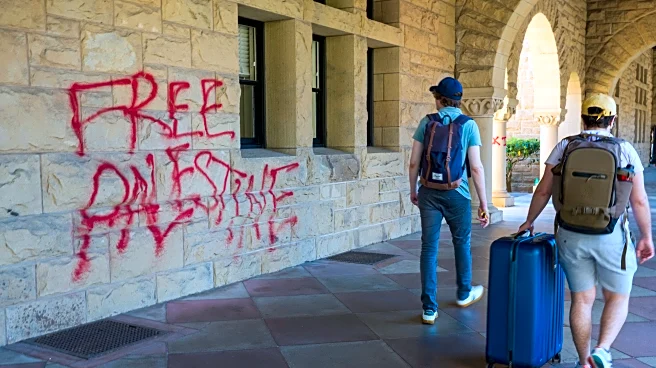Rapid Read • 8 min read
Pope Leo XIV is making a significant change in Vatican tradition by opting to live communally in the papal residence. He plans to share his newly renovated apartment with four associates, marking the first time in modern history that a pope has chosen such an arrangement. Among his roommates is Father Edgard Rimaycuna, his Peruvian personal secretary and a close friend. This decision reflects the community ethos of the Augustinian order, to which Pope Leo belongs. The renovation of the papal apartment, located in the Apostolic Palace, includes repairs for water infiltration and humidity. The Vatican has not provided detailed comments on the restructuring, but technicians have been working on the renovations for months.
AD
Pope Leo's decision to live communally is a departure from the traditional solitary lifestyle of previous popes, including Pope Francis, who chose to live in a Vatican guesthouse. This move could signal a shift towards a more inclusive and community-oriented approach within the Vatican. It may influence perceptions of the papacy, emphasizing humility and closeness to the people, as Pope Leo has expressed in past statements. The decision has sparked mixed reactions online, highlighting the ongoing debate about modernizing traditions within the Catholic Church.
The renovation of the papal apartment is ongoing, and Pope Leo's communal living arrangement may set a precedent for future papal decisions. Observers will be watching to see how this change affects the dynamics within the Vatican and the broader Catholic community. The Vatican's response to this shift, as well as public and ecclesiastical reactions, will be crucial in determining the long-term impact of Pope Leo's decision.
Pope Leo's choice to live communally may reflect broader cultural shifts towards community and shared living spaces. It challenges traditional notions of papal authority and lifestyle, potentially influencing discussions on leadership and humility within religious contexts. This decision could also inspire other religious leaders to reconsider their living arrangements and the symbolism they convey.
AD
More Stories You Might Enjoy












